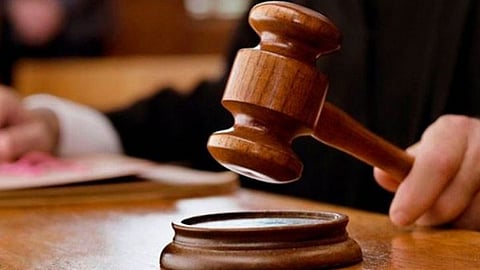

BENGALURU: Karnataka ranks on the top among 18 states in India as per the latest India Justice Report (IJR) -- country’s only ranking of states on the delivery of justice.
In its fourth edition, the IJR 2025, which was released on Tuesday, Karnataka is the only state to meet reservation quotas for SC, ST and OBCs in both police and judiciary. At just 1.2%, the state police has the lowest officer-level vacancy among all large states and has the highest number of paralegal volunteers in the country.
80% prisoners in Karnataka undertrials
The IJR rankings are based on individual state’s performance in four areas -- police, judiciary, prisons and legal aid. Karnataka ranked first among the 18 large and mid-sized states (with a population of over one crore each), retaining its position from the last edition.
Karnataka is followed by Andhra Pradesh, Telangana, Kerala and Tamil Nadu. But, despite being a top ranking state, Karnataka’s performance in prisons, legal aid and women’s employment in police is lagging behind.
According to IJR 2025, “80 per cent of the inmates in Karnataka prisons are under trial prisoners (UTPs), which is the highest since 2015”. There may be a correlation between the rise in the number of UTPs languishing in prisons in the last one decade and lack of access to legal aid at the grassroots -- village level.
“The number of legal service clinics at the village level has fallen from 157 to now 32,” states the report. The state boasts of taking women’s share in police to 25%, but in reality, “Karnataka police remains male dominant with only roughly 9 per cent women in police and a mere 6 per cent at the officer level,” states the report.
Ironically, not a single state or Union Territory has met their reserved quota for women in the police. According to the report, out of 2.4 lakh women in police, only 960 are in the IPS, while 24,322 are holding non-IPS officer positions such as sub-inspector, inspector and deputy superintendent of police.
The IJR was first initiated by Tata Trusts and the first ranking was published in 2019. This edition is in collaboration with the Centre for Social Justice, Common Cause, Commonwealth Human Rights Initiative (CHRI), DAKSH, TISS – Prayas, Vidhi Centre for Legal Policy, and IJR’s data partner -- ‘How India Lives’.
Commenting on the report, former judge of the Supreme Court, Justice Madan B Lokur (Retd), said, “The punishing process of accessing justice begins with the very first encounter an individual has with the system. With our failure to properly equip and train frontline justice providers — police stations, legal aid actors including paralegal volunteers and district courts — we fracture public trust,” he said.
“The strength of our entire justice framework rests on these critical first points of contact... Alas, the burden continues to remain on the individual seeking justice, and not the state to provide it,” he added.
Chief Editor, IJR, Maja Daruwala, said, “As India moves forward into a hundred years of being a democratic, rule-of-law nation, the promise of rule of law and equal rights will remain hollow unless underwritten by a reformed justice system. Reform is not optional. It is urgent. A well-resourced responsive justice system is a constitutional imperative that must be experienced as an everyday reality available to every citizen.”